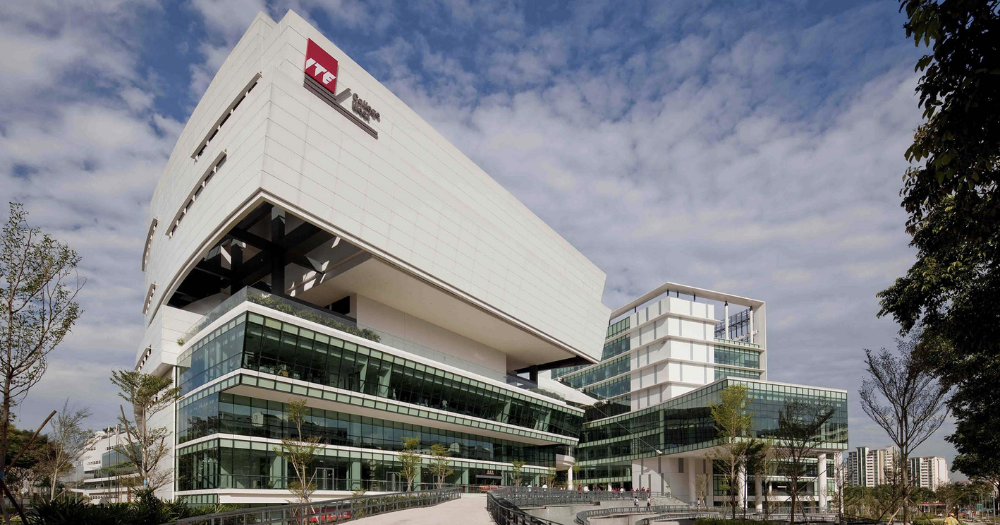Follow us on Telegram for the latest updates: https://t.me/mothershipsg
Institute of Technical Education (ITE) and polytechnic students can anticipate deeper industry exposure, more flexibility in their curriculum, and a stronger support system.
The Ministry of Education (MOE) announced several recommendations to the sector on Jan. 7 after a year-long review on opportunities and pathways in applied education.
Feedback gathered from over 2,000 stakeholders
The review was launched in Jan. 2021, led by Second Minister for Education Maliki Osman.
"Our focus was to better support the diverse strengths and aspirations of our students from polytechnics and ITE, and prepare them for the future economy," said Maliki on Jan. 7.
Over 2,000 stakeholders ranging from students, alumni, parents, staff, industry and community partners were consulted over 40 engagement sessions.
The Review Committee identified three key areas of enhancements: strengthening students’ career readiness, providing more flexibility in academic pathways, and building a more integrated support system for students.
The polytechnics and ITE will progressively implement the recommendations starting Academic Year (AY) 2022.
Three-year Higher Nitec qualification
MOE and ITE announced in April 2021 that ITE’s existing Nitec and Higher Nitec programmes will be streamlined into a three-year ITE education pathway.
In the first phase of implementation, the enhanced curricular structure will apply to eight courses from the AY 2022 intake.
More courses will transit to the enhanced structure in subsequent phases post-AY 2024, after ITE makes necessary adjustments to the curriculum following a review of the outcomes of the implementation in the first phase.
More opportunities for industry exposure
Current polytechnic and ITE students mainly have the chance to apply their skills in real-world settings in their final year of studies, through their compulsory final year internship.
"The polytechnics will create opportunities for students to take on additional industry exposure opportunities, on top of their compulsory third-year internship," said Maliki.
Opportunities include job shadowing and short job stints during vacation periods.
Instead of a single final year internship, ITE students will take on two linked industry attachments (IA) -- a three-month IA in Year 2, followed by a six-month IA in Year 3 .
Revision of curriculum for soft skills
Engagement sessions affirmed the need to strengthen life skills like understanding global perspectives, self-awareness and resilience, said Maliki.
Polytechnics and ITE will strengthen these non-technical skills in students and focus on the competencies that they will need for life and work with a revised LifeSkills curriculum.
With resumption of travel arrangements in the future, Maliki said that "we [will] continue to aim for 70 per cent of our Institutes of Higher Learning students to participate in overseas exposure programmes," as another facet of experiential learning.
Taking more time to complete polytechnic diploma
Another recommendation is to allow selected polytechnic students to spread out their education over more than three years, and up to five years.
Maliki said that this was to "cater to the diversity of students with different strengths, interests, and learning needs."
This move accommodates students who wish to explore interests such as entrepreneurship or sports, as well as those who face greater academic challenges in completing their studies in three years.
In a media briefing, MOE said that this would not affect the tuition fees and government subsidies that students receive.
Students would take on a reduced modular load after completing six semesters, and fees would be pro-rated accordingly.
Strengthened student support system
Polytechnics and ITE will look into supporting students more effectively by improving the coordination and communication among stakeholders within and outside the institution.
To provide timely support for students, personal tutors in polytechnics and ITE will receive enhanced training such that they will be better equipped to identify early signs of distress.
"Polytechnics and ITE will also explore the provision of more dedicated time for personal tutors to check-in with their students," said Maliki.
Another recommendation is to enhance outreach to recent graduates and offer post-graduation career guidance, including for those who are about to complete or have completed their full-time National Service.
"This could take the form of more targeted outreach, with advice on upgrading opportunities suited to their strengths and interests to respond to evolving employment market and economic circumstances," said Maliki.
Follow and listen to our podcast here
Top image via ITE website.
If you like what you read, follow us on Facebook, Instagram, Twitter and Telegram to get the latest updates.
